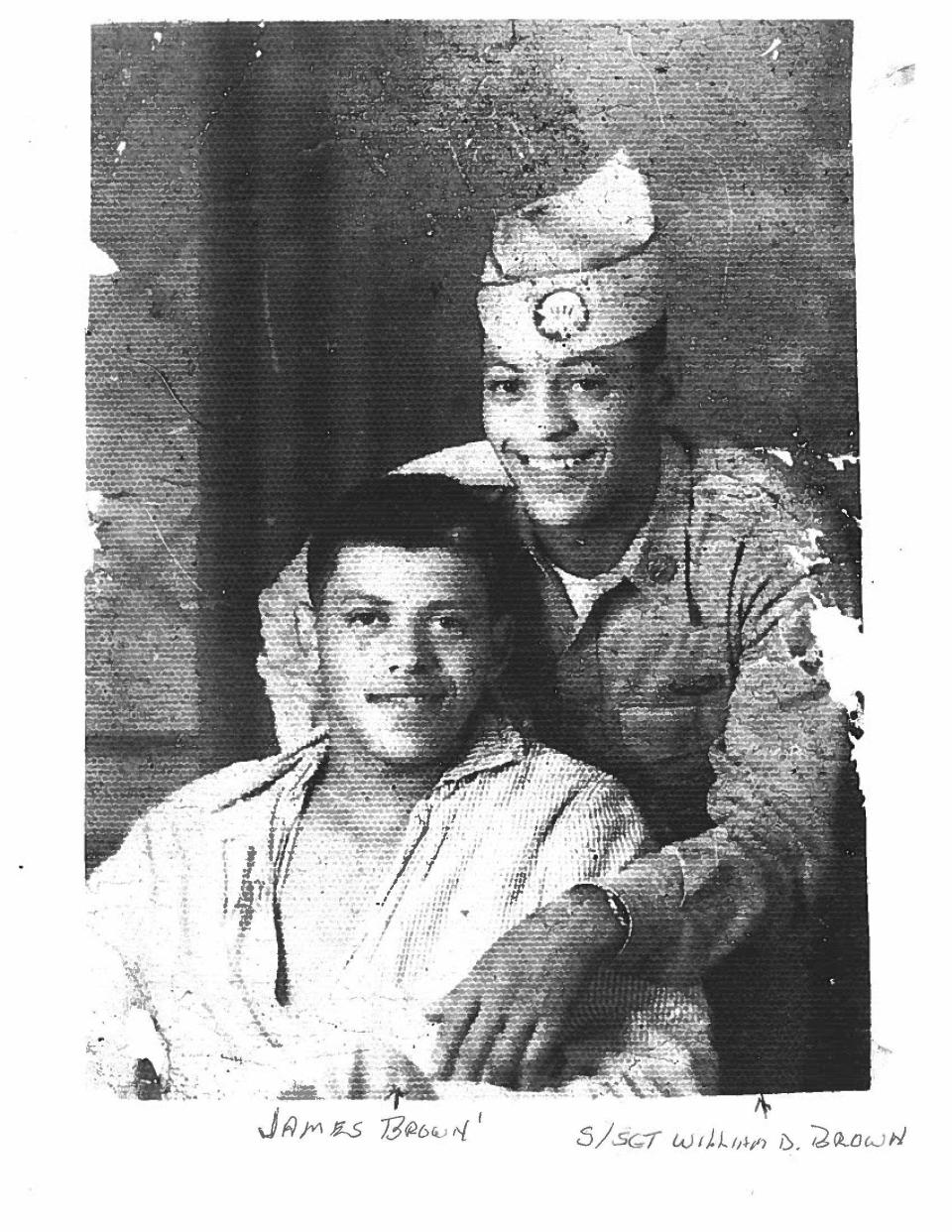Leland Korean War veteran awarded Purple Heart after almost 70 years
In the pitch-black thicket of the Korean jungle, Leland resident James Brown and his squad took heavy fire from what seemed like all sides.
The men, patrolling behind enemy lines, had to shoot flares in the air just to orient themselves enough to engage and find a way back.
That night, Brown fought for his life and his country, but for nearly 70 years since, he’s been fighting for recognition from his country.
Brown was hit with several pieces of shrapnel in his right shoulder and thigh, and was awarded the Purple Heart while recovering in a hospital in Japan.
But just months later, he was back in service in Korea and tried to alert his commander of a safety issue when he was court-martialed and imprisoned, charged with disobedience of a superior officer and cowardly conduct before the enemy.
After a racially motivated trial in the midst of the Korean War on Nov. 14, 1952, Brown was convicted on the disobedience count, sentenced to five years in prison and dishonorably discharged. The cowardly conduct charge was thrown out on appeal but he was imprisoned for nearly two years.
Due to this, Brown was not listed as a veteran for most of his life, his Purple Heart was taken away and he was in danger of being buried without his military service recognition.
But last year, Brown teamed with the Veterans Legal Clinic at Wake Forest, which helps low-income former service members with legal services to obtain veteran status, to correct his military records with the Department of Defense.
According to Eleanor Morales, director of the clinic, the students working on Brown’s case were able to use his testimony as a guide to scour documentary records that would support his case for earning a Purple Heart and honorable discharge.
“The students did an extraordinary job getting records to corroborate what Mr. Brown was saying,” Morales said. “Mr. Brown had incredible memory recall of events 70 years ago, and so because he was so good at recalling very minute details, the students went out and conducted an extensive fact investigation and found an inordinate amount of documentation to corroborate what he was saying.”
The students found Korean War casualty files from the National Archives and an Office of the Surgeon General report that proved time in action and hospitalization. They recovered a record of Brown's court-martial trial, which lasted less than 30 minutes, which mentioned he was wounded at the hands of the enemy.
The students even located a Department of Defense report on military justice in the armed services up to 1972 that reviewed racial bias in the military and supported their case that Brown was discriminated against because he is Black. When he joined the National Guard in 1950, his unit was racially segregated until just a few years prior.
In all, Morales said their investigation led to a 700-page report with evidence in favor of Brown's record correction.
“We spent a full academic year working diligently to craft the best case that we could, which was difficult as we were working with incomplete and even destroyed records, and what we did have was from the 1950s, and often difficult to decipher,” said William Crotty, who along with fellow 2022 law school graduate Ashley Williard, worked on the case as a student.
“After countless hours of working closely with Mr. Brown, brainstorming, researching, drafting and revising, we finally submitted the completed petition to the Army Board for Correction of Military Records.”

On Nov. 12 during halftime of the U.N.C. v Wake Forest football game, Brown was presented with his Purple Heart at a ceremony celebrating the restoration of his service records. Vietnam veteran John Spencer, who with the help of the Veterans Legal Clinic was awarded the Purple Heart last year, presented Brown with the medal to a standing ovation.
Morales said he took 15 steps over to Brown to present the Purple Heart, symbolizing the 15 steps Brown took toward his commanding officer that precipitated the now-reversed dishonorable discharge.
“It was far more than I expected,” Brown said about finally receiving the recognition he earned. “One thing I don’t want to leave out is that Professor Morales is my angel; I call her that because after 69 years of waiting on a reversal I don’t have words to describe how much I appreciate everything she has put into it.”
Reporter John Orona can be reached at 910-343-2327 or jorona@gannett.com.
This article originally appeared on Wilmington StarNews: Leland Korean War veteran awarded Purple Heart 70 years after service

